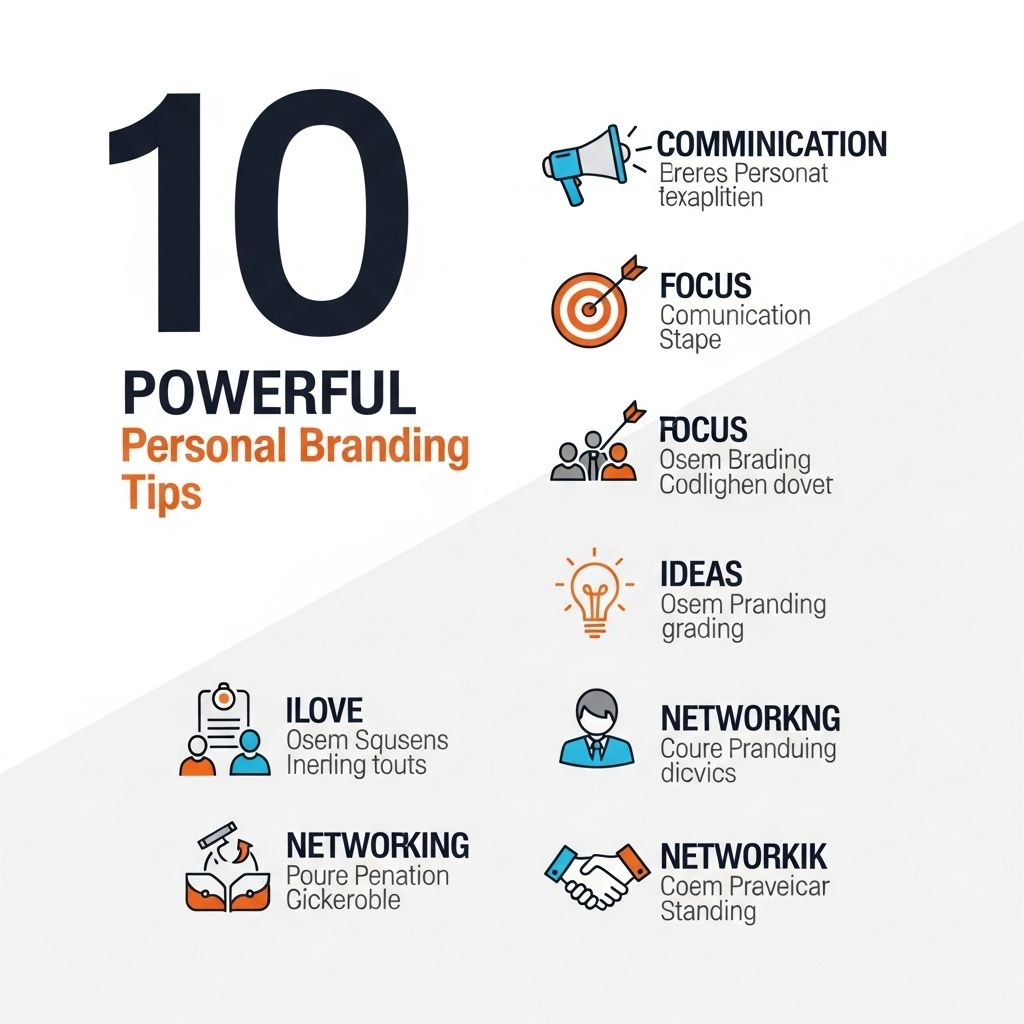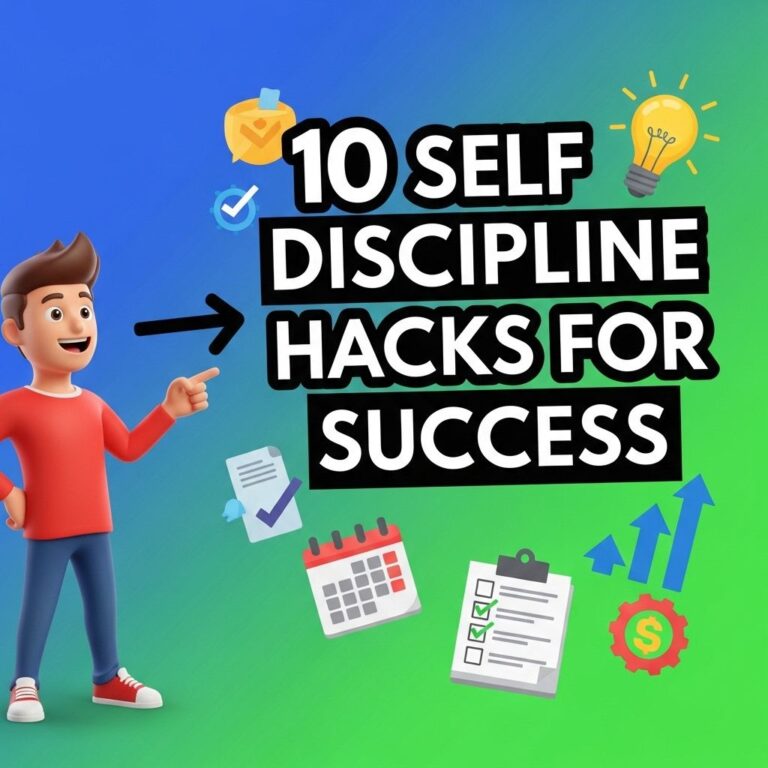In today’s digital landscape, personal branding has become a crucial element for professionals looking to stand out in their respective fields. Whether you’re an entrepreneur, a freelancer, or climbing the corporate ladder, building a strong personal brand can enhance your credibility, increase your visibility, and establish your authority. Here, we delve into ten powerful strategies that can help you create and maintain an impactful personal brand.
Table of Contents
Understanding Personal Branding
Before diving into the tips, it’s essential to grasp what personal branding entails. At its core, personal branding involves the conscious effort of shaping your reputation and how others perceive you. A robust personal brand is not merely about self-promotion; it’s an authentic representation of your values, skills, and passions.
The Importance of Personal Branding
- Visibility: A strong personal brand helps you get noticed in crowded markets.
- Credibility: Establishing authority in your field boosts trust among peers and clients.
- Opportunities: A well-defined brand can open doors to career advancements and partnerships.
- Connection: Personal branding allows you to connect with like-minded individuals aligned with your interests.
Tip 1: Define Your Brand Identity
Before you can build a personal brand, you must understand who you are and what you want to convey. Consider the following questions:
- What are your core values?
- What skills or expertise do you possess?
- What do you want to be known for?
- Who is your target audience?
Tip 2: Craft Your Unique Value Proposition (UVP)
Your Unique Value Proposition communicates what sets you apart from others in your field. It should succinctly summarize your skills and the value you bring. A good UVP answers the question, ‘Why should someone choose you over anyone else?’ Here’s a simple formula to create your UVP:
- Your target audience
- Your expertise
- The problem you solve
- The benefits you provide
For example:
“I help small business owners streamline their processes to save time and increase profitability through tailored digital solutions.”
Tip 3: Build a Professional Online Presence
Your online presence is often the first impression you give potential clients or employers. Here are several platforms to consider:
| Platform | Purpose |
|---|---|
| Networking and professional connections | |
| Industry news and thought leadership | |
| Medium | Publishing articles and showcasing expertise |
| Visual storytelling and personal branding |
Optimize Your Profiles
Ensure your profiles are updated, professional, and reflect your personal brand:
- Use a professional photo.
- Write a compelling bio that includes your UVP.
- Showcase your achievements and experiences.
Tip 4: Create High-Quality Content
Content is king in the digital age. By producing valuable content, you can position yourself as an authority in your field. Consider these content types:
- Blog Posts and Articles
- Videos and Webinars
- Podcasts
- Social Media Updates
Content Strategy
Develop a content calendar and focus on quality over quantity. Aim for posts that are insightful, engaging, and relevant to your audience.
Tip 5: Engage with Your Audience
Engagement is key to building a strong personal brand. Respond to comments, participate in discussions, and show appreciation to your followers. Consider these engagement strategies:
- Host Q&A sessions on social media.
- Participate in relevant online forums.
- Create polls or surveys to get feedback.
Tip 6: Network Strategically
Networking is an integral part of personal branding. Focus on building genuine relationships rather than just collecting contacts. Here are some tips for effective networking:
- Attend industry conferences and workshops.
- Join professional associations related to your field.
- Utilize online networking platforms to connect with industry leaders.
Tip 7: Seek Feedback and Adapt
Regular feedback is essential for growth. Encourage your peers and mentors to provide constructive criticism on your personal brand. Be open to adapting your strategy based on the insights you receive.
Methods to Gather Feedback
- Surveys and questionnaires to your audience.
- One-on-one feedback sessions with trusted colleagues.
- Online reviews and testimonials.
Tip 8: Stay Authentic
Your personal brand should be a reflection of your true self. Authenticity builds trust, which is crucial for long-term success. Avoid the trap of mimicking others; instead, let your personality shine through in your communications and branding efforts.
Tip 9: Leverage Social Proof
Social proof, such as testimonials, endorsements, and case studies, can significantly enhance your brand’s credibility. Here’s how to leverage social proof:
- Request testimonials from clients and colleagues.
- Highlight notable achievements and accolades.
- Showcase case studies that demonstrate your impact.
Tip 10: Monitor Your Brand
Lastly, keep an eye on your personal brand’s perception over time. Use tools like Google Alerts and social media monitoring platforms to track mentions of your name and brand. This enables you to respond promptly to any negative feedback and capitalize on positive discussions.
Conclusion
Building a powerful personal brand is a continuous journey that requires dedication and authenticity. By defining your identity, creating valuable content, engaging with your audience, and networking effectively, you can cultivate a personal brand that not only elevates your professional presence but also resonates with your audience. Implement these strategies, and start your journey towards personal branding success today!
FAQ
What is personal branding?
Personal branding is the practice of marketing yourself and your career as a brand, emphasizing your unique skills and personality.
Why is personal branding important?
Personal branding is important because it helps you stand out in a crowded job market, build credibility, and attract opportunities aligned with your values and goals.
How can I define my personal brand?
To define your personal brand, identify your strengths, values, passions, and the unique value you bring to others, then create a consistent image and message around these elements.
What role does social media play in personal branding?
Social media plays a crucial role in personal branding by allowing you to showcase your expertise, connect with your audience, and share your story in a visual and engaging way.
How often should I update my personal brand?
You should regularly update your personal brand to reflect changes in your career, skills, and experiences, ideally every few months or whenever you achieve significant milestones.
Can personal branding help me in my job search?
Yes, personal branding can significantly enhance your job search by making you more memorable to employers and demonstrating your value proposition effectively.









